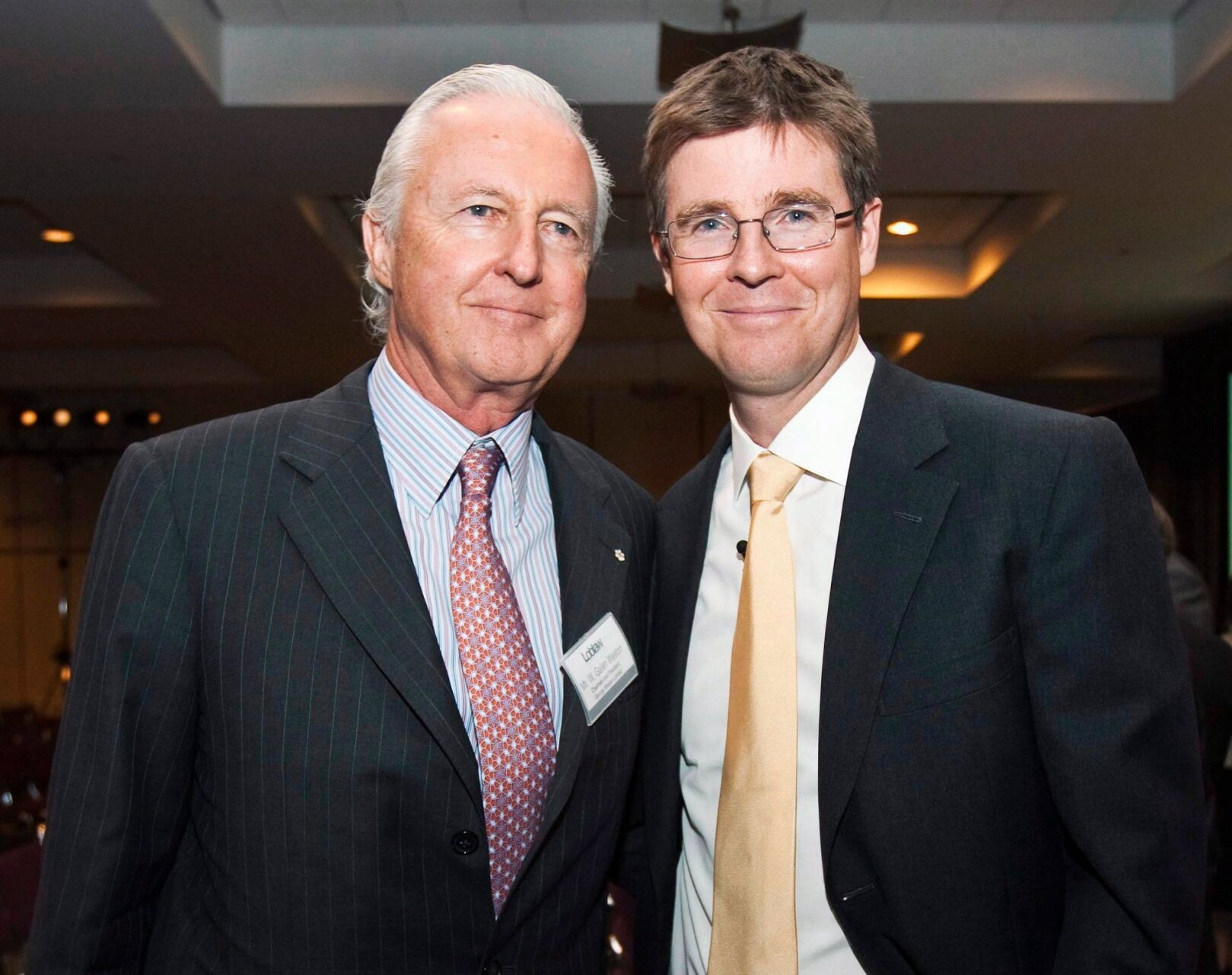The first time I asked Galen Weston for an interview was 1989 in England.
He was playing polo near Fort Belvedere, the country house he leased where Edward VIII signed his abdication papers in 1936. I went one sunny summer afternoon to watch a match involving Westonās polo team, the Maple Leafs, that included Prince Charles.
In addition to hard-charging horses and mallet-swinging action, there were traditions to be honoured. At half time, all spectators were expected to walk onto the field and stomp down the divots churned up by flying hooves. So there I was, along with Queen Elizabeth and many others, helping repair the surface.
When the game was over, I took my only chance at asking Weston for an interview, shouting my request as he trotted past horse high. You can imagine how easily he ignored me.
But I persisted, and in 2000 was seated in the pc28¹ŁĶųoffice of Weston, chairman and chief executive of George Weston Ltd. Without waiting for my first question, Weston launched into the time he met with his board of directors in Blacks Harbour, N.B. After the meeting, everyone boarded a fishing boat to visit Connors Bros., a Weston-owned sardine-packing firm.Ā
Weston spotted whale-watchers in the Bay of Fundy. āāNever mind the sardines,ā he said to the directors, āLetās go see the whales.ā Sure enough, they were watching a minke whale and her baby. So you had not just the mother but her progeny as well and she did a wonderful flip, right under our boat.ā
Blue eyes ablaze and patrician features animated, he recreated the āwonderful flipā with his hands, stretching the syllables in sync with his excitement, saying, āwunnnderrful.ā Weston continued, āShe went right down and the baby wentāĀ ā and here he tilted his head back then made a high-pitched ābee-bee-beeā noiseĀ ā āand down she went following and it was a fantastic sight. I think a lot of people whoād been on the board a long time wondered how could life be so much fun on the board of a food company.ā
Fun? Galen Weston was worth billions and he was having fun? Is this what life was supposed to be like for a dutiful third-generation heir of a Methodist founder? For two hours a high-spirited Weston regaled me about everything from Girl Scout cookies to Presidentās Choice Financial, from high fashion at Holt Renfrew to market share in the grocery business.
To my surprise, he turned out to be a gambling man. āYou get captivated and carried away with the excitement of what might be created. So, you take the risk. If youāre a gambler on the horses, thatās what you do, and you do it with as much information as you can gather about the horse. I guess Iām a gambler in business. I try and attract enough information initially and then talent to ensure that the gamble pays off.ā
In 1972, when he became head of Loblaw Companies, he tapped Dick Currie, a Harvard MBA, and Dave Nichol, a chum from the University of Western Ontario. The trio streamlined operations by reorganizing fourteen companies into two divisions, baking and retail.
āOne of the fortuitous things in my life was that I realized I couldnāt do all the jobs personally,ā said Weston. āAll I could do was set the tone for some really capable people to come in and give them, under pretty general direction, a free hand to do what they felt was right to build the company.ā
But he didnāt mind taking credit. āI guess thereās a bit of ego stroking goes along with it. I guess anybody that feels theyāve made a pretty good effort at something and itās worked out, I guess we all like a bit of recognition.ā
As for succession planning, Weston had two choices. The eldest was daughter Alannah, chair of Selfridges Group, who read English at Oxford, and was the first female member of the Oxford polo team inĀ 20 years. The other was Galen Jr., a year younger, who didnāt like to be called Junior, so was known as G2. Educated at Harvard and Columbia, he was involved in the launch of Presidentās Choice Financial, the in-store bank.
When Galen died at 80 in 2021, he was worth $9 billion, the fourth-richest Canadian. As designated successor, G2 represents the fourth generation, an astounding feat. Only 10 per cent of family firms make it to the third generation.
But G2 faces a sea-change in the retail landscape. Weston-owned Loblaw no longer enjoys its former unblemished esteem.Ā There were calls in May for a months-long shoppers boycott and Weston and Loblaw just paid $500 million to settle a lawsuit over a price-fixing scheme on bread.
In such a world, with the fun all gone, maybe itās time again for some whale-watching.



































To join the conversation set a first and last name in your user profile.
Sign in or register for free to join the Conversation